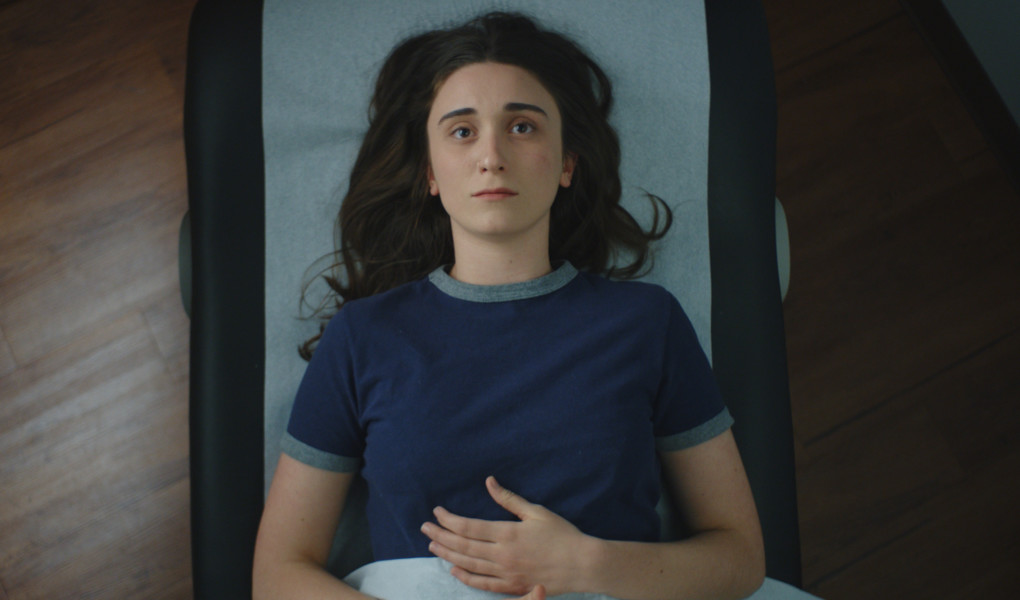My own experience with vaginismus inspired me to write Debbie Does Dilators. – Savannah Magruder, Writer/Director, award-winning filmmaker
Watch the film here!
And below is Savannah’s personal story and inside scoop about the film…
After several years of struggling with the condition – enduring excruciatingly painful sex, being patronized and misdiagnosed by dismissive doctors, and doing endless internet research – I was finally diagnosed correctly with vaginismus by the doctors at Maze Women’s Sexual Health in New York.
There, they told me how common the condition is – it’s estimated to affect 1 in 10 people who have vaginas.
I was stunned. Why wasn’t anyone talking about this?
My shock quickly turned to anger and frustration, as certainly a big reason vaginismus isn’t discussed is the stigma surrounding women’s sexual pleasure, and our conditioning by society to keep quiet about the topic.
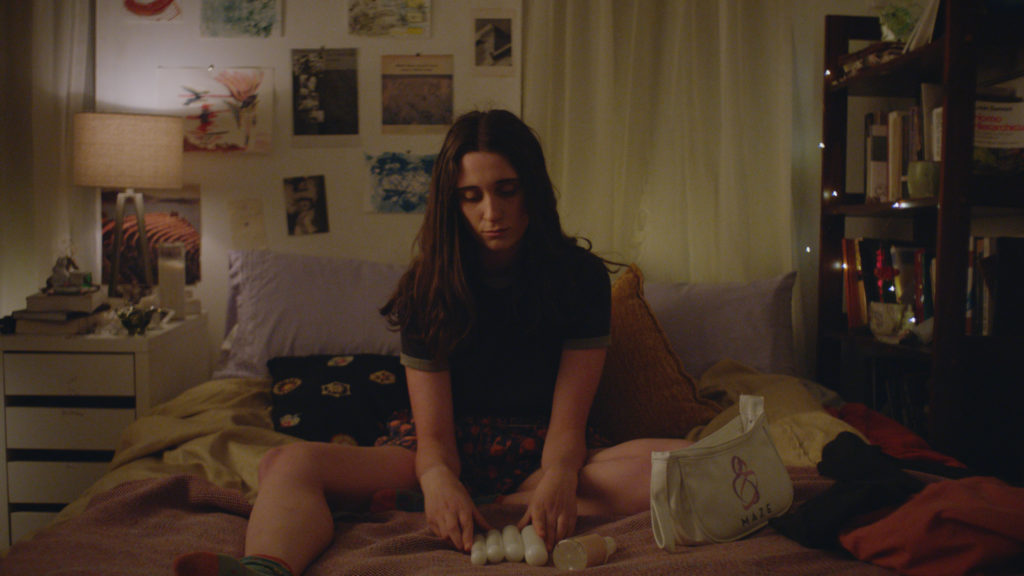
One of the biggest challenges in having vaginismus is explaining it to people – doctors, partners, family members.
What wording sounds the least weird?
How can I tell a partner I have this problem and ensure they’ll still be interested in me? How can I explain this to a doctor in a way they won’t just brush off as a need for “more foreplay”?
It is frustrating to live with this condition when few have heard the word “vaginismus”, let alone know what it means. And because awareness is painfully sparse, treatment is not covered under health insurance, making overcoming the condition immensely difficult for those who can’t afford to pay out of pocket for treatment.
Meanwhile, Viagra commercials are everywhere and the majority of health insurance plans cover erectile dysfunction. Men’s sexual pleasure is valued and prioritized while ours is silenced, even discouraged.
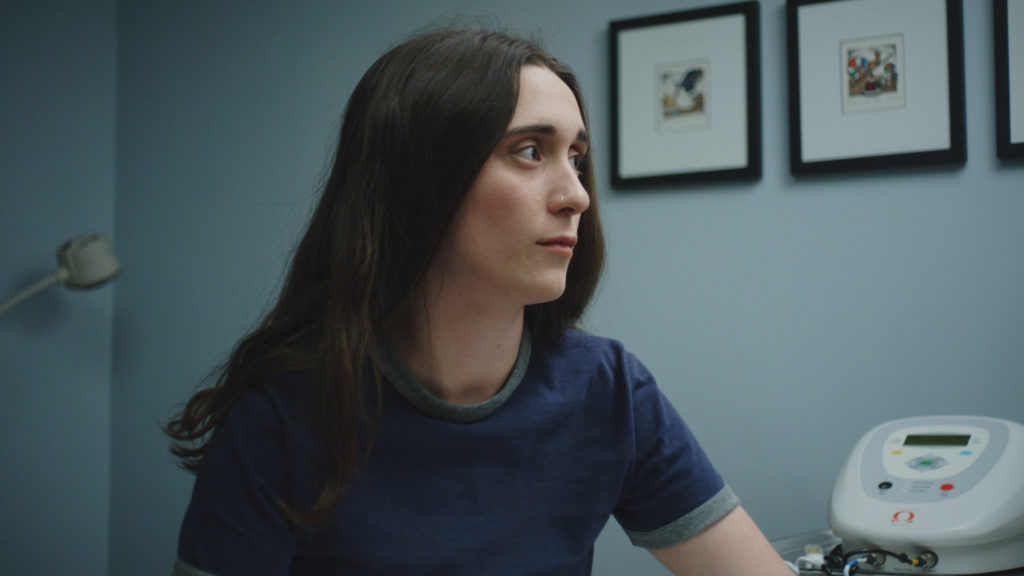
In an effort to combat this, I opened up to publications such as Self and Cosmo, detailing my experience with vaginismus and treatment.
I soon began receiving letters from women all over the world who were also experiencing the condition.
One was from a 15-year-old girl, seeking advice for telling her mom.
One was from a 35-year-old woman who’d never had penetrative sex with her husband and was starting to panic that she’d never have children. One was from a college freshman who told me her way of coping with the pain of penetration was to get so drunk she couldn’t feel it (something I did in my early college years too – and certainly alarming, because at that level of inebriation one can not give proper consent).
Another young woman from Czechia asked if I thought dilation could be done without the help of doctors, as professional treatment was unavailable in her part of the country.
All of these women made me realize how important it is to talk about vaginismus, openly and honestly.

And as a filmmaker, that’s what I do – tell stories that I feel deserve to be told. My goal in making Debbie Does Dilators was to spread awareness and validate the experiences of those with vaginismus.
It was important to me that the film would be somewhat humorous – I didn’t want to evoke pity in the viewer, but empathy.
That’s how the protagonist’s job came about – she’s a production assistant on porn sets, and I wanted to explore the irony of that. She’s constantly surrounded by artificial and idealized portrayals of sex that she can’t relate to whatsoever.
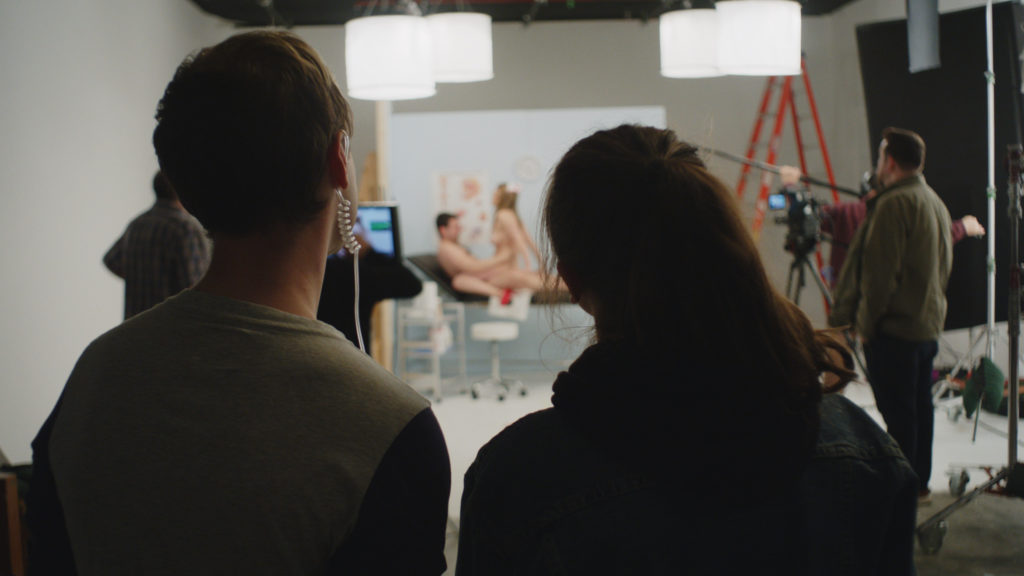
It’s kind of a metaphor for the world we live in.
We are bombarded by images the media presents to us, a standard to live up to, while many of us cannot relate to them – whether it be because of our race, class, ability, sexuality or gender identity.
In the hookup scene, I pulled a lot of inspiration from my experiences revealing my condition to past partners.
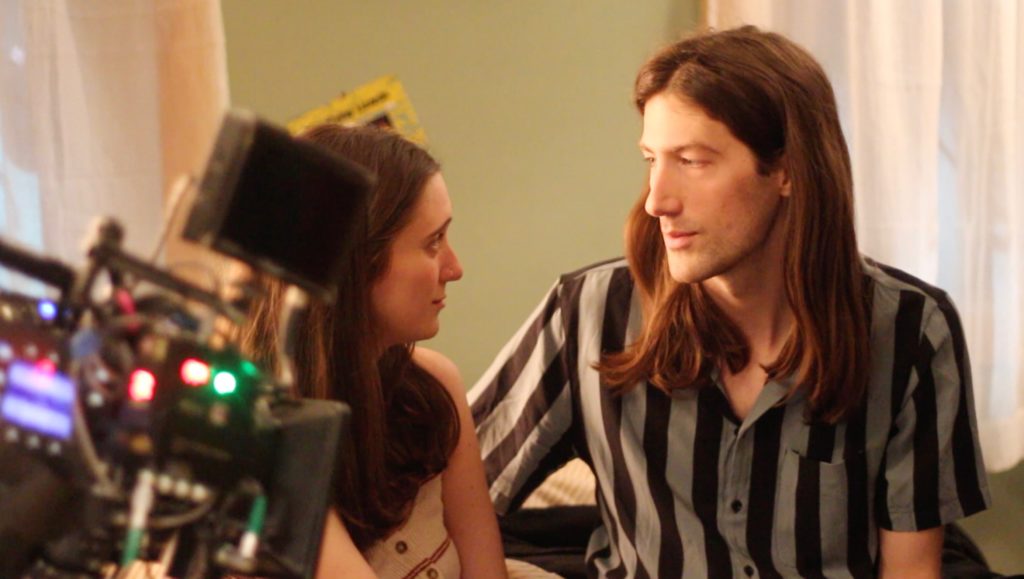
I’m bisexual and have experienced negative reactions to vaginismus from partners of all gender identities, but it was important to me that my main character in this film be straight, as the revelation of the condition tends to be the most dramatic within straight partnerships due to “sex” in heteronormative society being defined, literally, as penis-in-vagina penetration.
The line in the film where the guy says…
“I can’t teach you to enjoy sex” – a dude I hooked up with during my freshman year of college literally said that to me, verbatim, before suggesting I masturbate in front of him to “loosen up”.
It was crushing and humiliating.
I hadn’t asked him to “teach” me anything – I’d just told him I experienced pain with penetration, in the hopes that he’d take that into consideration moving forward.
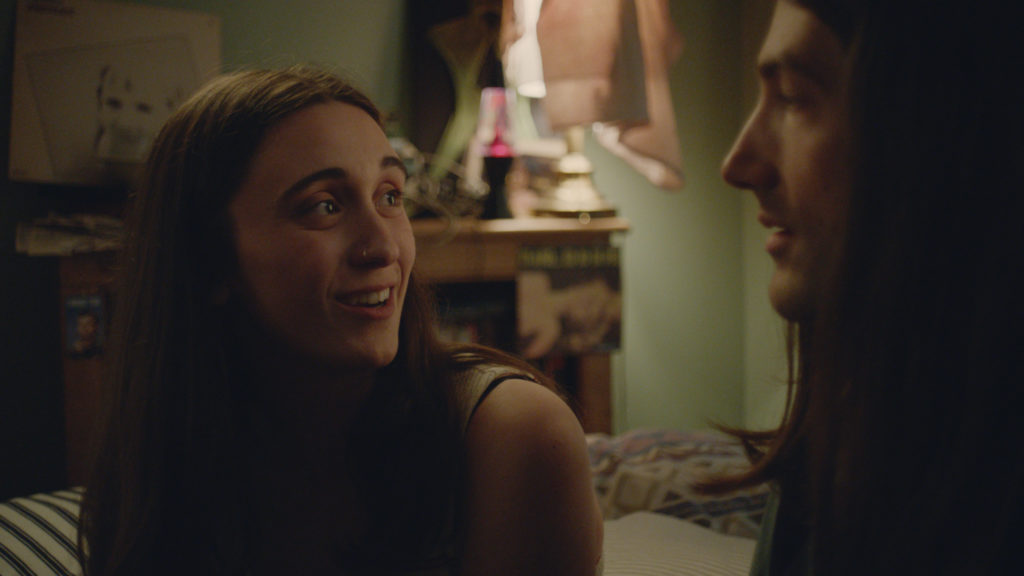
I’d intended to still let him penetrate me, despite the pain, as that’s what I’d become accustomed to doing. Needless to say, though, the fling ended after that incident.
It was really empowering to put that moment in the film – to expose the BS that people with vaginismus have to deal with.
The lead actress, Kylie Zimmer’s involvement in the project turned out to be serendipitous. I’d asked a friend if he knew anyone in the acting school he attended who might be a good fit, and he suggested Kylie, so I invited her to audition. She nailed the character for me, and I offered her the role.
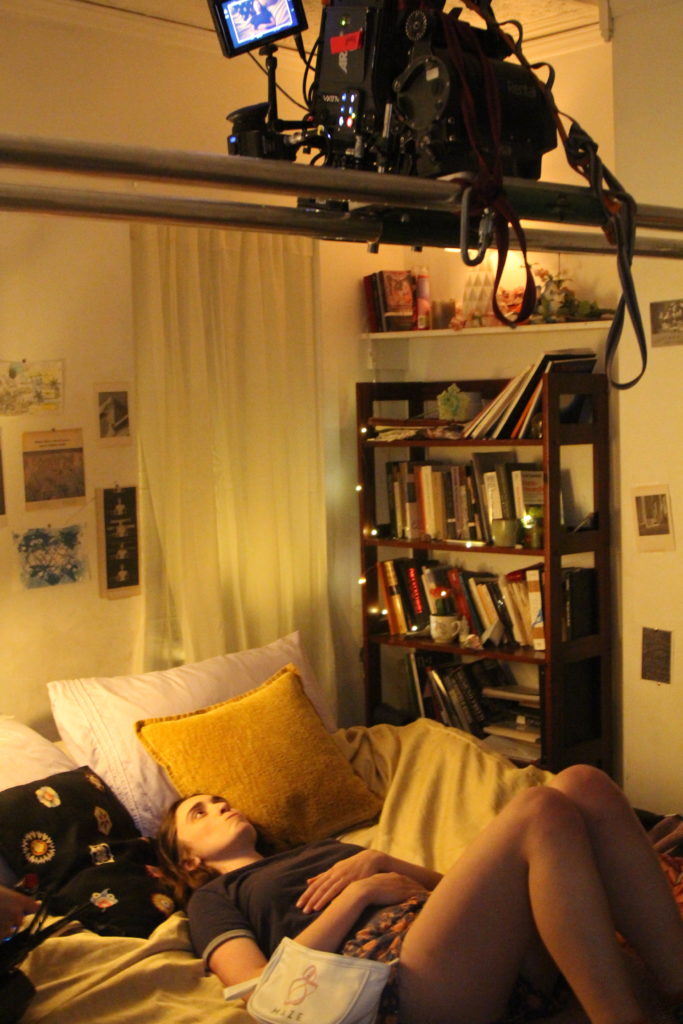
The first time we met up to go through the script together, she revealed that she’d been struggling with symptoms of vaginismus for a while. I was amazed – it was incredible, and a testament to the commonality of the condition, that the actor I’d found by chance and ultimately cast in the role actually had vaginismus. It was as if the role was written for her.
I was graciously awarded funding for the film from the clinic I was treated at, Maze Women’s Sexual Health.
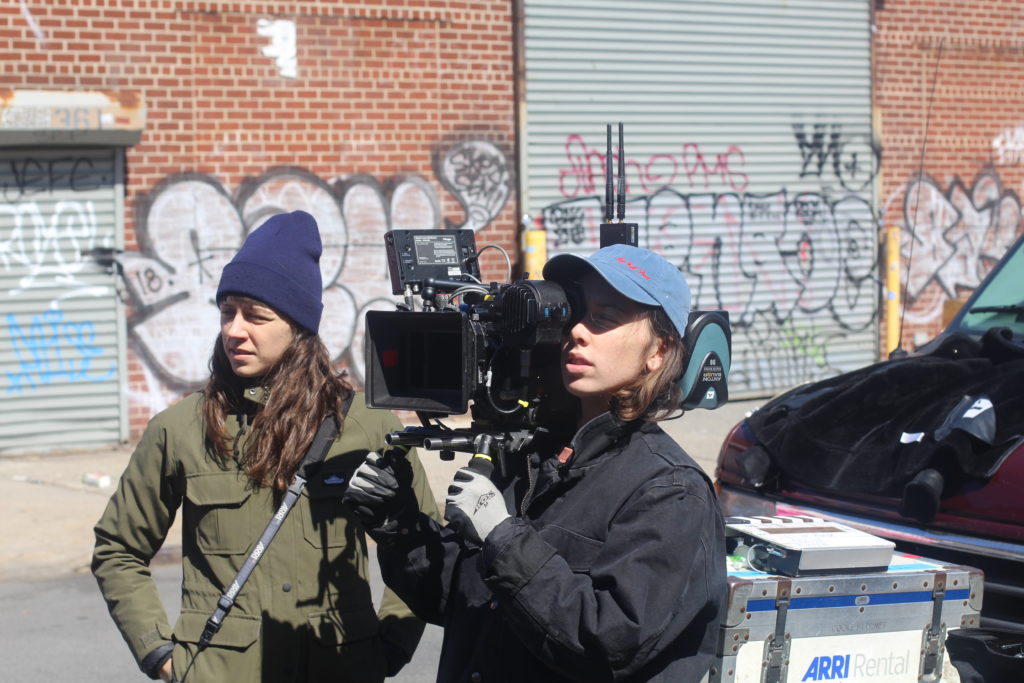
In writing the exam room scene, I consulted the medical team at Maze to ensure it was accurate. They also connected me with other patients with vaginismus, allowing me to gain others’ perspectives and experiences with the condition and work those into the script.
It was so awesome to have Maze’s support throughout the process of creating Debbie Does Dilators, and really felt full-circle. My experience being treated there was nothing but positive and I was happy to feature them as the clinic in the film.
Making Debbie Does Dilators was the most vulnerable thing I have ever done.
There were moments where I panicked, wondering whether I’d alienate audiences with my film about this “weird” subject. But I was projecting, being self-conscious.
With support from close friends, family, and Maze, I found the strength to push through that fear.

Debbie Does Dilators premiered at the Indie Memphis Film Festival, won Best Brooklyn Project at the Brooklyn Film Festival and screened at various other festivals around the country.
Now, I’m finally sharing it on the web which feels really great – here, it can reach the widest audience and hopefully have an impact.
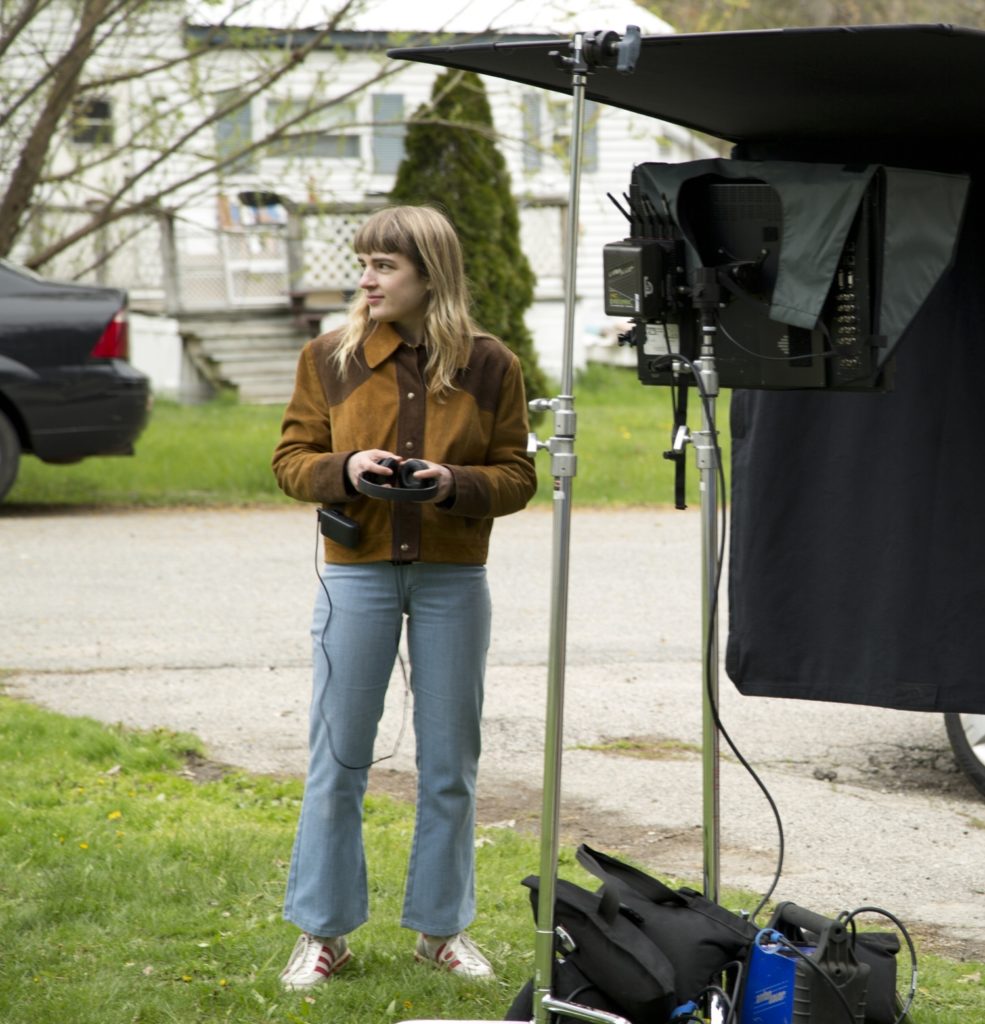
– Savannah
